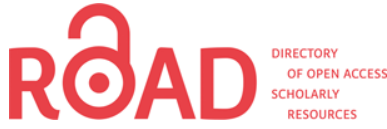- Editorial Board
- Aims and Scope
- Peer Review Process
- Publication Ethics
- Open Access Policy
- Plagiarism Policy
- Indexing
- License Term
- Manuscript Template
- Archiving Policy
- Complaints Policy
- Copyright and Licensing Policy
- Correction, Retraction, Withdrawal Policies
- Creative Commons License
- Publication Ethics and Malpractice Statement
- Article Processing Charge
- Authors Guidelines
- Reviewer Guidelines
PLAGIARISM POLICY
IJSER strictly prohibits, in any form, any unethical act of copying or plagiarism. Significant portions of the manuscript from previously published existing sources are considered plagiarism cases. We use the plagiarism detection software Turnitin to check all manuscripts submitted for publication in the journal for plagiarism. During the initial stages of review, we strictly reject manuscripts that contain plagiarism and do not consider them suitable for publication in the journal. We will reject the manuscript and return it to the author for review if the Plagiarism Checker results show a similarity index of more than 20% and reference sources with more than 5% plagiarism. If the editor-in-chief discovers plagiarism in a manuscript after publication, he or she may seek the assistance of a dedicated committee. If the journal discovers excessive plagiarism in the manuscript, it will contact the author’s affiliation, college, or university, as well as any relevant funding agencies. Furthermore, the journal will mark the plagiarized paper on each page of the PDF file. The extent of plagiarism will determine the formal withdrawal of the paper.
Plagiarism Policy and Procedures
IJSER respects intellectual property and aims to protect and promote the original work of its authors. Manuscripts containing plagiarized material are contrary to the standards of quality, research, and innovation. Therefore, the journal expects all authors submitting articles to adhere to ethical standards and refrain from any form of plagiarism. If the journal suspects an author of plagiarizing in a submitted or published manuscript, it will reach out to them for an explanation within a fortnight, after which it may forward the case to the newly formed Fact-Finding Committee (FFC) for further action.
The editor-in-chief of the journal will:
- Contact the author's affiliated entity to take strict action against them if they do not respond within the specified time.
- Remove the PDF version of the published manuscript from the website and disable all links to the full articles. We will add the term plagiarized manuscript to the title of the published manuscript.
- Suspend the author's account with the journal, reject all future contributions from the author for five to ten years, or even permanently ban the author.
- Publish a list of these authors on the journal’s website, along with their full contact information.
- strongly object to any type of unethical behavior, including copying or plagiarism. Large portions of paper, taken directly from previously published sources, identify plagiarism.
Artificial Intelligence Detection System
The journal employs a rigorous system (Turnitin) to identify the utilization of artificial intelligence (AI) techniques in the preparation of research publications submitted for publication. This method makes sure that the research is original and correct by using advanced AI detection tools to find data that was created or changed significantly by AI systems. IJSER advocates the ethical utilization of AI techniques, including data analysis and language editing, while forbidding the illegitimate creation of substantive content. Authors must disclose any utilization of AI technologies in their work, and noncompliance with these standards may lead to submission rejection.









